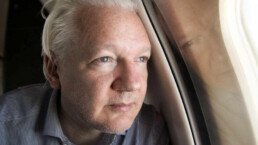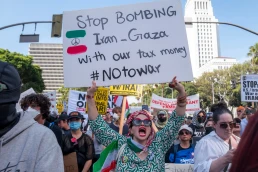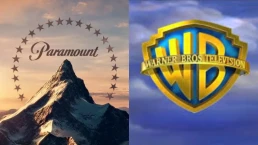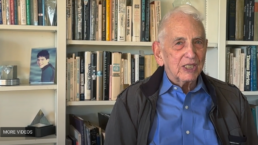Setting the legal implications of Mr. Assange’s plea aside, I celebrate that he is finally free. I attribute his freedom not to a reasonable U.S. government, but to the unrelenting drive by supporters all over the world who never faltered in their demand that Mr. Assange be set free.
By Jeffrey Sterling
I am so happy that Julian Assange is finally free. Though his ordeal was much longer than mine, I can empathize with his experience being charged with violating the over 100 year old and oft abused Espionage Act. He won’t have to face the whole of the outlandish charges from the U.S. Department of Justice because a plea deal was reached. In Saipan, a small U.S. territory approximately 4,000 miles from Hawaii in the Northern Mariana Islands, Mr. Assange pleaded guilty to one criminal count of conspiring to obtain and disclose classified US national defense documents. As noted in Jacobin, in the plea, Mr. Assange admitted to violating U.S. law,
“Working as a journalist, I encouraged my source to provide information that was said to be classified in order to publish that information. I believe that the First Amendment protected that activity… I believe the First Amendment and the Espionage Act are in contradiction with each other, but I accept that it would be difficult to win such a case given all these circumstances.”

One interesting point in his plea was his invocation of the First Amendment. Had Mr. Assange been extradited and gone to trial in the U.S., he would not have been allowed to mention anything about the First Amendment nor have related protections. When it comes to the Espionage Act, the First Amendment is irrelevant. I congratulate him on speaking of the relationship between the Espionage Act and the First Amendment in court. Hopefully, his case will continue to spark more dialogue on the two.
Back to the plea, I have always had reservations about plea deals. An eon ago when I worked in a public defender’s office, defendants taking a plea was the expected norm, it was supposedly an equitable way to unburden the system and for the defendant to receive a reduced sentence. I saw too often that a plea bargain meant an innocent person was going to jail. Instead of prosecuting according to and in defense of the law, prosecutors threaten defendants with harsh sentences if they don’t accept a plea bargain. Counting any justifications for the use of plea bargains, my view has always been that if the prosecution was so sure of its case, why bother with a plea bargain?
Many of those charged with violating the Espionage Act have taken pleas as a way to avoid a lengthy prison sentence which is almost guaranteed considering how one-sided Espionage Act prosecutions are, Mr. Assange was truly facing a sentence of over one hundred years. A guilty plea is rarely, if ever done in the interest of justice or of a defendant in the U.S. criminal justice system.
Plea bargains do nothing for defendants other than giving them a criminal record and time behind bars, the bargain always favors the prosecution. In my instance, the imperious prosecution had no doubt that I was going to accept a plea in telling my attorney that they wanted me to “plead to something” and serve at least a year in prison. I rebuked their generous offer because I would never plead guilty to something I did not do. However, I cannot fault anyone for making a plea bargain. The pressures of an unyielding criminal justice system and individual circumstances make a plea acceptable despite it being a double-edged sword. I imagine that Mr. Assange agonized over the decision to take a plea bargain. The U.S. charging Mr. Assange with violating the Espionage Act confined him for over 5 years in Belmarsh Prison. And all of it because he dared to reveal the truth. Even without extradition and a trial, Mr. Assange was being severely punished. The meandering of the legal system of decisions and appeals meant he was going to spend more time behind bars, away from friends and family. Mr. Assange’s punishment was unjustified, and it was time for it to end.
Assange’s plea should not be mistaken as a victory for press freedom. If the plea can be considered a victory, it is Mr. Assange’s alone. Judge Ramona Manglona commented, “It appears, this case ends with me here in Saipan.” She is absolutely correct in one respect, the case against Mr. Assange ends with his plea, but not the overall issue of the U.S. government using the Espionage Act against journalists and whistleblowers.
For those who may think the danger of being targeted with the Espionage Act is over because of Mr. Assange’s plea, I draw your attention to another sentiment expressed by Judge Manglona while accepting the plea, from The Guardian:
“If this case was brought before me some time near 2012, without the benefit of what I know now, that you served a period of imprisonment … in apparently one of the harshest facilities in the United Kingdom … I would not be so inclined to accept this plea agreement before me,”
In other words, that federal district judge saw nothing wrong with the U.S. charging and moving to try a non-U.S. citizen with violating U.S. law as well as prosecuting a journalist for collecting and disseminating the truth. As such, I believe this plea will embolden the U.S. to continue using the Espionage Act against its detractors and whistleblowers. Mr. Assange’s ordeal, even though it ended without him going to trial or a U.S. prison will stand as a deterrence example to anyone, anywhere who might choose to reveal U.S. abuses and illegalities, at least the U.S. government hopes so. Those dubious hopes are fueled by a system and law that allow, if not encourage, the dilution of press freedom and the targeting of whistleblowers with impunity. Truly, if anyone, other than Mr. Assange can claim any sort of victory with this plea deal, it is the Department of Justice. Mr. Assange’s plea is nothing more than another notch on the handle of the gun that is American justice.
Setting the legal implications of Mr. Assange’s plea aside, I celebrate that he is finally free. I attribute his freedom not to a reasonable U.S. government, but to the unrelenting drive by supporters all over the world who never faltered in their demand that Mr. Assange be set free. I believe that pressure pushed both the U.K. and U.S. governments into fashioning a way out of the mess they created. A plea, and no extradition helps them both save what little face they’ve had during this ordeal. But, their duplicitous actions against Mr. Assange and press freedom will forever taint their claims to the contrary.
All the diplomatic and legal wrangling were surely in the back of Mr. Assange’s mind, at least temporarily. From my own experience, I know what it must have been like for him as he marched towards freedom whether under a plea or otherwise. It’s hard to know what freedom really is or how it feels until you’ve had it taken away and you’ve had to fight to get it back. The experience of walking into freedom out of oppression is impossible to describe. Having the handcuffs taken off for the last time, ditching a prison uniform for your own clothes, tasting the air outside and feeling the sunshine, finally unobscured by prison walls, and freely embracing loved ones are all incredible sensations that can, in time, overcome the wounds inflicted by injustice.
I don’t exactly know why, but I shed a tear when I read that Julian Assange was free. Maybe it was because I feel a sort of kinship with him and what he’s gone through, particularly that we both survived an untenable ordeal. Maybe it was because his freedom means much more to all of us, particularly the value we place on press freedom and the significance of anyone who calls truth to power. Whatever the reason, I was profoundly moved by Mr. Assange being set free. I wish him peace and love in his newfound freedom. I can only hope the day will come when I have the opportunity to shake his hand.
Jeffrey Sterling is a former CIA case officer who was at the Agency, including the Iran Task Force, for nearly a decade. He filed an employment discrimination suit against the CIA, but the case was dismissed as a threat to national security. He served two and a half years in prison after being convicted of violating the Espionage Act. No incriminating evidence was produced at trial and Sterling continues to profess his innocence. His memoir, “Unwanted Spy: The Persecution of an American Whistleblower,” was published in late 2019. He serves as a Whistleblower Advocate with RootsAction.
Recent Posts
As Security Council Stalls, There Are Other Ways to Stop U.S.-Israeli War on Iran
March 3, 2026
Take Action Now A “Uniting for Peace” resolution in the UN General Assembly can counter the Security Council’s failure to act.By Marjorie Cohn,…
States Can Block the Paramount-Warner Deal
March 3, 2026
Take Action Now But thanks to some clever maneuvering, they are already running out of time.By David Dayen, The American Prospect What started as…
Congress, Do Your Job and End This Illegal War of Aggression By The U.S. and Israel
March 2, 2026
Take Action Now Congress must assert its Constitutional authority over matters of war and peace against an out-of-control, rogue president and…
Daniel Ellsberg Speaks to Us as the War on Iran Continues
March 2, 2026
Take Action Now Ellsberg’s voice is back via a compelling new book. “Truth and Consequence,” being published this week, provides readers with his…




